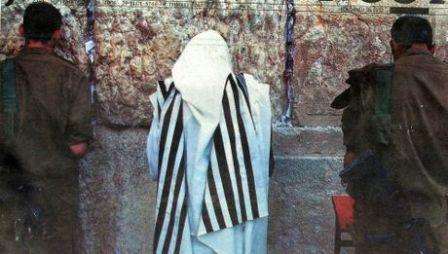September 13, 2013, - 4:45 pm
Yom Kippur 2013: To My Readers & Friends . . .
My movie reviews will be up shortly, but, before that, something far more important in my eyes and those of the Jewish people. Tonight, the Jewish fast day of Yom Kippur begins at sundown (and ends at nightfall on Saturday Night). It’s a day of atonement for our sins and a day full of prayer to G-d*, asking for forgiveness and a good year.

Yom Kippur is one of the holiest Jewish holidays, at the end of which we believe our fate for the next year is “sealed” by G-d. We believe that on Rosh HaShanah, that fate is written by Him, and on Yom Kippur, He issues His final Judgment. This is Judgment Day.
On Yom Kippur, we fast and pray for about 25 hours to ask G-d for a good year. Before the fast, we eat a big, sumptuous meal, which expands the stomach and makes the fast more difficult. During the holiday, there are strict prohibitions: no food, drink, shower, sex, TV/radio, phone, etc. the whole day, which is mostly spent at synagogue. The idea is that you are removing yourself from worldly and material concerns and focusing on deeper, far more important, spiritual ones, the most important of which is repentance for your sins. We also don’t wear leather shoes, as back in the day, those were a luxury of the wealthy, and the holiday is not about ostentatious or material displays, but about humble requests before G-d. My comfy ASICS GT-2000s await my feet.
I am going to faster services tonight and tomorrow (no sermon or fundraising for Jewish causes, as is the usual), and so in the little free time that I have, I plan to read part of a book I got on the life of an American Jewish soldier who was captured and spent time as a prisoner in a Nazi internment camp during World War II. It’s called, “A European Sojourn 1943-1945 An Autobiography Pvt. Frederick O. Scheer Serial No. 14118781: As Recounted to Rear Admiral William O. Miller J A G C Usn (Ret.).” From Eatonton, Georgia, Pvt. Scheer was captured shortly after the D-Day invasion, and he spent the rest of WW2 as a Prisoner of War in Germany. While we “deprive” ourselves of food and drink for just over 25 hours on this Jewish holy day, I’m sure I’ll read of real deprivation in this book.
Get Yours . . .
When the holiday ends tomorrow night, the shofar–a ram’s horn–is sounded.
To my Jewish friends and readers, have an easy fast (a Tsom Kal) and a great year. Gmar Chatimah Tovah [May you be finally sealed for good–a good year.]
To everyone, see you very, very soon. And thank you for your continued patronage of this site. I will be praying for you and for America, its safety, and security. Our continuing freedom is paramount.
I very much appreciate my readers, their continued support of this site, and, of course, their tips and comments always. And, among other things, I will pray for that to continue and increase in the coming year.
Thanks to the many readers–both Jew and Gentile–who sent me good wishes wishing me an easy fast and a good year. Right back atcha!
* Religious Jews use dashes in the word “G-d” and do not write it out completely out of respect for Him and the wish not to write the name in vain.
Tags: A European Sojourn 1943-1945 An Autobiography Pvt. Frederick O. Scheer Serial No. 14118781: As Recounted to Rear Admiral William O. Miller J A G C Usn (Ret.), Jewish high holy days, Jewish Holidays, Jewish holy days, Jews, Yom Kippur, Yom Kippur 2013


“My comfy ASICS GT-2000s await my feet.”
That’s kind of a nice loophole;)
DS_ROCKS! on September 13, 2013 at 4:49 pm